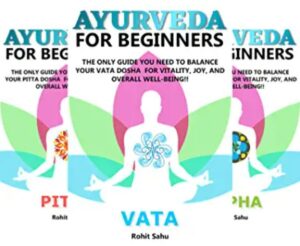It’s no wonder that there are so many digestive and nutritional aids for the stomach on the market today, as well as medicines for gas and indigestion. Most of these conditions are most likely the result of improper food combinations. This is a hotly debated topic given the increased concern about diet and the many opinions on the topic.
To gain nourishment and make our meals appetizing, we frequently mix two or more food items. However, certain foods must be consumed separately since the time necessary for digestion and the environment required for digestion varies.
Every meal has its own taste (Rasa), a heating or cooling energy (Virya), and a post-digestive effect (Vipaka), according to Ayurveda. Some people have prabhava, an inexplicable effect. So while it is true that an individual’s Agni largely determines how well or poorly food is digested, food combinations are also of great importance. When two or more meals with contrasting tastes, energy levels, and post-digestive effects are mixed, agni might get overloaded, blocking the enzyme system and leading to the production of toxins. However, if consumed separately, these same foods may promote agni, be digested faster, and even help to burn ama.
Ayurveda considers food to be medicine. Bad food combinations or Viruddha Ahara (mismatch of Vipaka, Guna, Virya, and Prabhava) may cause agni disruption, poor digestion, stomach pain, bloating, weariness, gas discomfort, ama buildup, dhatus vitiation, and channel blockage. This prevents you from getting enough nutrition. If you consume the wrong food combinations for an extended period of time, you may develop rashes, chronic digestive problems, and bad breath. Only by eating the appropriate foods will you be able to lose weight and remain energized throughout the day.
Improper food combinations might also cause your body to produce toxins. This is because each food item has a specific taste, characteristic, potency, energy, and influence on the digestive system, according to Ayurveda. When the various energies of food are mixed, it may overwhelm the digestive fire, resulting in indigestion, bloating, fermentation, gas, and the formation of toxins.
Certain food combinations are more likely to cause stomach upset than others. If you pay attention and avoid certain meal combinations, you might get better health, faster healing, better digestion, more nutrients, and better health in general.
Bananas and milk are a popular dietary combo that might cause chaos in our digestive tract. When they are ingested together, they may reduce the digestive fire and produce toxins, which can cause sinus, cold, cough, allergy, and congestion difficulties. Though both of these foods have cooling properties, their post-digestive effects vary; bananas are sour, whereas milk is sweet. This causes our digestive system to get confused, resulting in imbalances.
Similarly, milk and melons should not be consumed simultaneously. Milk and melon are both cooling, yet milk is laxative and melon is diuretic. Milk needs extra time to digest. Furthermore, since the stomach acid necessary to digest the melon causes the milk to curdle, Ayurveda recommends avoiding milk with sour foods. These bad food combinations not only make it hard to digest, but they also confuse the brains of our cells, which can lead to several health problems.
Below is a list of food combinations that should be avoided totally, as well as other food combinations that should be avoided. This is intended to be a guide, not a definitive list. Indeed, you may know various combinations that are unsuitable for your body. Trust your instincts.
Food Combinations to Avoid Include:
- Fruits, melons, sour fruits, and bananas are incompatible with milk. It should not be eaten with salty foods like samosas, parathas, or khichadi. It should also not be boiled with tea.
- Grains should not be taken with tapioca or fruits.
- Fruits and milk should not be consumed with vegetables.
- Beans do not go well with milk, fish, fruits, or yogurt.
- Cheese, hot drinks, sour fruits, milk, mangoes, nightshades, and beans should not be eaten with yogurt.
- Fats and proteins are incompatible foods because they need separate digestive juices.
- Cheese should not be combined with fruits, hot beverages, milk, beans, or yoghurt.
- Proteins and carbohydrates are incompatible, and their ingestion together may cause delayed digestion.
- Nightshades (tomatoes, potatoes, and so on) are incompatible with fruits such as cucumbers, melon, and dairy products.
- When honey is boiled, cooked, or mixed with hot water or milk, it becomes incompatible.
- Curd should not be consumed at night.
- Ghee that has been stored in a bronze jar for over ten days should not be reheated.
- Avoid eating heavy foods when your digestive power is low, eating light foods when your digestion power is high, and eating foods that are inconsistent with your digestion power.
- Eggs, milk, bananas, and dates are incompatible with starches.
- Lemon is incompatible with the following foods: yogurt, milk, cucumbers, and tomatoes.
- Fruit and tapioca are incompatible with grain.
- Mangoes, cheese, starch, and yogurt are incompatible with hot beverages.
- Bananas, raisins, and milk are all incompatible with radishes.
- Everything, notably dairy, fried food, grains, and starches, is incompatible with melons. Melons, more than other fruits, should be eaten alone.
- Fruit, particularly banana and mango, raisins, and jaggery are incompatible with tapioca.
Other Ayurvedic Guidelines You Should Follow Include:
- In cold seasons and areas, meals with a cold potency and an oily texture are inappropriate food combinations.
- In the winter, avoid cold and dry things; in the summer, heated potency, bitterness, and pungent taste.
- If you have a little appetite, avoid eating a heavy meal.
- Warm potency foods should not be combined with cold potency foods.
- Do not eat when having a natural urge to pee or defecate.
- Milk should not be taken with salty or sour fruits.
- Food that is undercooked or overcooked should not be consumed.
- Avoid storing cooked food for an extended period of time.
- Cold water should be avoided. Only lukewarm or room-temperature water should be consumed. Also, do not drink cold water just after drinking hot tea or coffee.
- As a general rule, avoid eating a lot of raw and cooked foods at the same time, or fresh foods with leftovers.
Hope this food combination guide provided you with some useful info on eating wisely. Wish you a healthier life!





